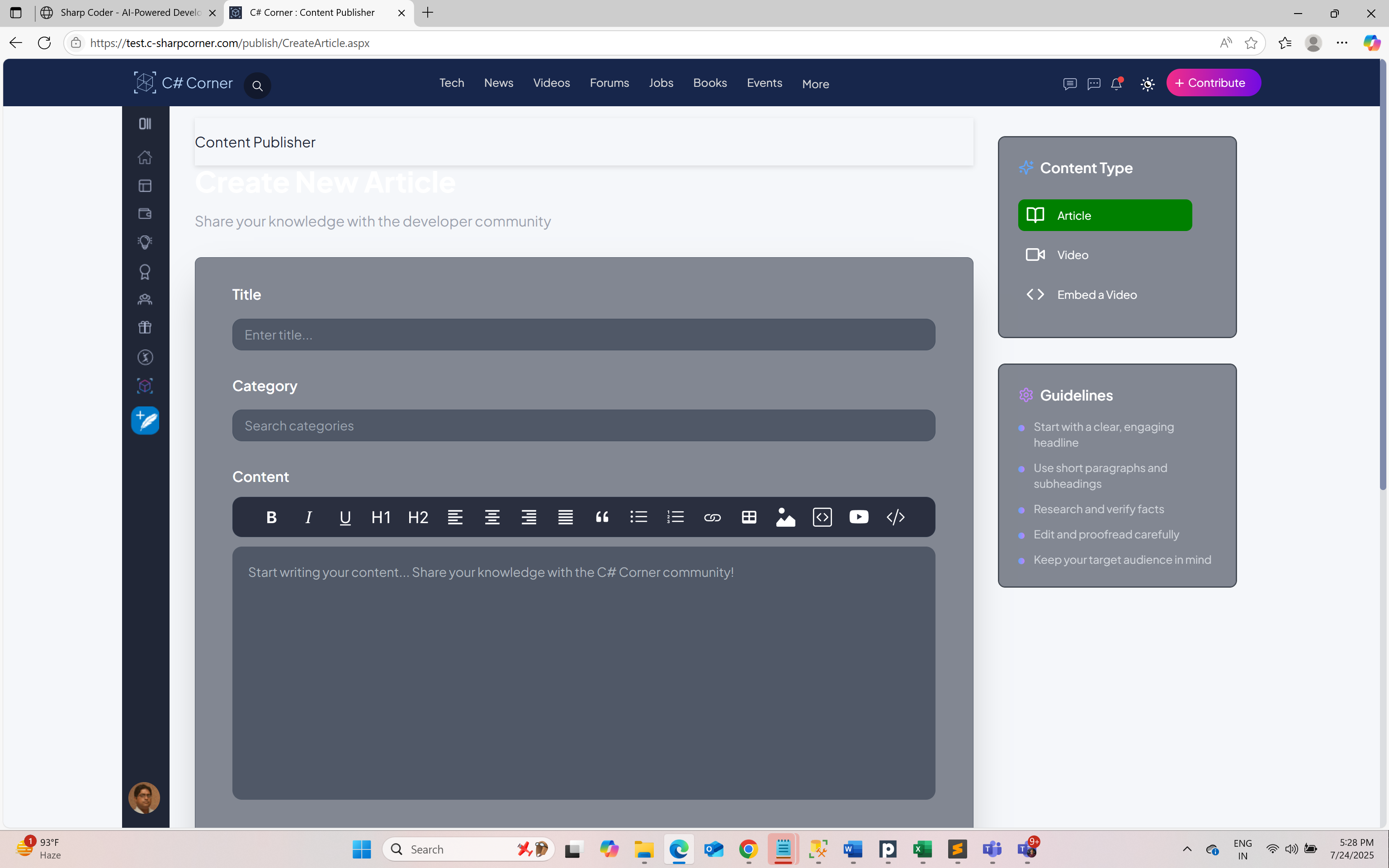How AI is Changing the World in 2025
Artificial Intelligence (AI) has been one of the most transformative technologies of the 21st century. By 2025, it has moved far beyond being a buzzword—AI now shapes how we live, work, learn, and interact with the world. From business and healthcare to education and entertainment, AI has become an inseparable part of modern life. Let's explore how AI is changing the world in 2025.

1. AI in Everyday Life
AI is no longer hidden behind the scenes—it's actively integrated into our daily routines.
Personal Assistants: AI-driven assistants like ChatGPT, Google Bard, and Apple's Siri have become smarter, more conversational, and deeply personalized, helping people manage schedules, write documents, and even provide emotional support.
Smart Homes: AI-enabled appliances and devices predict needs, reduce energy consumption, and provide real-time security.
Transportation: Self-driving cars and AI-assisted public transport are safer and more reliable than ever, reducing accidents and traffic congestion.
2. AI in Business and Work
Businesses are leveraging AI to drive efficiency, reduce costs, and enhance customer experiences.
Automation: Repetitive administrative tasks are fully automated, allowing employees to focus on creative and strategic work.
Decision-Making: AI-powered analytics offer real-time insights, predicting market trends and consumer behavior with high accuracy.
Workplace AI Agents: Virtual AI colleagues assist with tasks, from drafting proposals to coordinating meetings, revolutionizing productivity.
3. AI in Healthcare
Healthcare has seen some of the most profound transformations due to AI.
import java.util.Scanner;
public class SimpleChatbot {
public static void main(String[] args) {
Scanner scanner = new Scanner(System.in);
System.out.println("AI Bot: Hi! I'm your AI assistant. Type 'bye' to exit.");
while (true) {
System.out.print("You: ");
String userInput = scanner.nextLine().toLowerCase();
if (userInput.equals("bye")) {
System.out.println("AI Bot: Goodbye! Have a great day.");
break;
} else if (userInput.contains("hello") || userInput.contains("hi")) {
System.out.println("AI Bot: Hello! How can I help you today?");
} else if (userInput.contains("time")) {
System.out.println("AI Bot: The current system time is " + java.time.LocalTime.now());
} else if (userInput.contains("date")) {
System.out.println("AI Bot: Today's date is " + java.time.LocalDate.now());
} else if (userInput.contains("help")) {
System.out.println("AI Bot: I can tell you the date, time, or just chat with you.");
} else {
System.out.println("AI Bot: Hmm, I don't understand that yet.");
}
}
scanner.close();
}
}
Disease Detection: AI systems now diagnose conditions like cancer, heart disease, and rare genetic disorders earlier and more accurately than ever before.
Personalized Medicine: Algorithms analyze genetic data and lifestyle factors to provide customized treatment plans.
Robotics in Surgery: AI-assisted robots perform minimally invasive surgeries with precision, reducing recovery times.
Mental Health Support: AI chatbots and virtual therapists provide instant support, making mental health care more accessible.
4. AI in Education
AI is redefining how we learn and teach.
Personalized Learning: Adaptive learning platforms create tailored lessons for students based on strengths and weaknesses.
AI Tutors: Virtual tutors provide 24/7 support, explaining concepts in different ways until students understand.
Administration: AI automates grading, attendance tracking, and feedback, giving teachers more time to focus on students.
5. AI in Creativity and Entertainment
AI is not just about logic and data—it's making waves in creative fields too.
Content Creation: AI generates music, artwork, video scripts, and even novels, blurring the lines between human and machine creativity.
Gaming: AI-driven games offer hyper-personalized experiences, adapting gameplay to each player.
Film and Media: Studios use AI to enhance CGI, create realistic characters, and even predict audience preferences.
6. AI and Society
With great power comes responsibility, and AI's rapid growth raises important societal questions.
Ethics: Issues like bias in algorithms, surveillance, and misinformation are at the forefront of discussions.
Jobs: While AI automates many roles, it also creates new opportunities in AI management, ethics, and development.
Global Impact: AI plays a crucial role in addressing climate change, optimizing energy usage, and supporting sustainable development.
7. The Road Ahead
By 2025, AI has become a catalyst for innovation and progress. It is reshaping industries, improving lives, and expanding possibilities. However, society must ensure that AI is developed responsibly, ethically, and inclusively.
The future of AI is not about machines replacing humans—it's about humans and AI working together to build a smarter, healthier, and more sustainable world.
✨ Conclusion: AI in 2025 is not just a tool—it's a partner in shaping the future. Those who embrace it responsibly will unlock endless opportunities, while those who resist may be left behind in a rapidly evolving world.